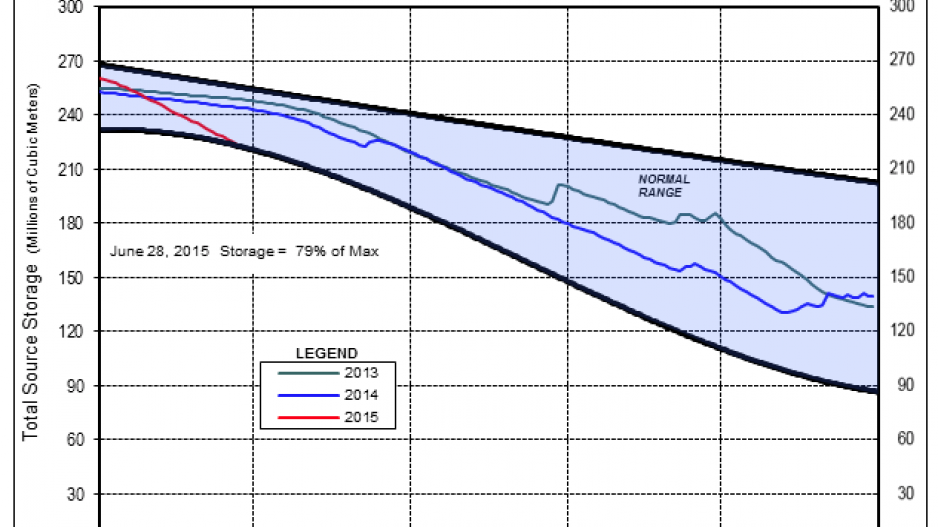Water experts and local governments are keeping a close watch on lower than normal water levels as drought conditions continue in British Columbia.
Metro Vancouver’s reservoirs are at 75% of normal as of July 6. That’s lower than usual for this time of year, and the region is now heading into a third month of very little rainfall following a warm winter that left little snow pack in the mountains to recharge streams throughout the summer.
“The big challenge I’m facing is I can’t predict how long this drought is going to last and this is the big question,” said Hans Schreier, a professor emeritus at the University of British Columbia’s Faculty of Food and Land Systems.
The region has had about 7 millimetres of rainfall since May 1, Schreier said, but a significant rainfall should do the trick to refill the reservoirs. If no rain falls throughout the summer, however, the Lower Mainland will face some big challenges in managing its water supply.
“The reservoirs are reasonably high right now and Metro Vancouver thinks that’s going to be enough to get us through, if we get a few rainfall events. But that’s the big question.”
If water in the reservoirs falls to a very low level, sediment from the bottom of the reservoirs would mix with the water, making it harder to treat.
Vancouver Island is currently experiencing a severe drought, leading the provincial government to ban fishing on the lower half of the island. The many wildfires that have been burning across the province, including on Vancouver Island, could also affect water quality, Schreier said, because when rain runs over fire-hardened earth sediment can be quickly washed into creeks.
In Metro Vancouver, water restrictions have been raised to level two (the most sever restrictions are level four). That means people can only water their lawns once a week and water parks that are not controlled by a timer have been turned off.
If people do not comply with the restrictions, they will be warned and may be fined up to $200 if they do not change their behaviour, said Darrell Mussatto, mayor of the City of North Vancouver and chair of Metro Vancouver’s utilities committee. It is up to each municipality to enforce the watering restrictions and Mussatto urged residents to report violations to their municipal government.
With climate change expected to bring hotter, drier summers to B.C., Schreier believes the situation is a wake-up call for British Columbians to get better at conserving water, noting that only Americans consume more water than Canadians. He thinks Metro Vancouver should have started urging water conservation much sooner.
Like California, B.C. is only just starting to regulate groundwater, and the province will need to do a lot of work to map aquifers throughout the province and monitor how quickly they fill up.
“We still have a long way to go to know where they are and how big they are,” Schreier said. “We have incredibly few monitoring wells compared to elsewhere in the world.”
@jenstden




